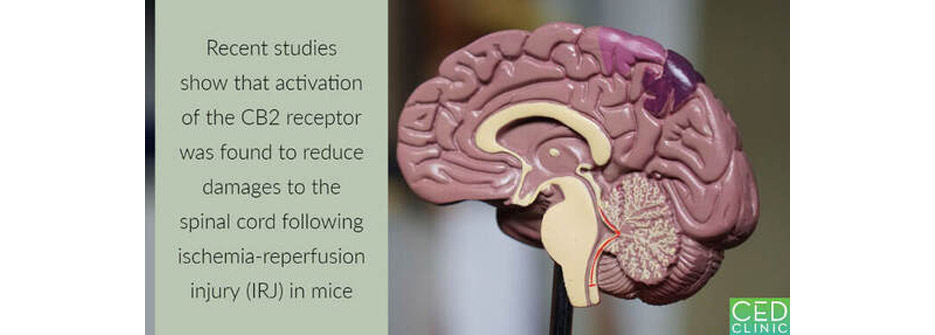Exogenous activation of cannabinoid-2 receptor modulates TLR4/MMP9 expression in a spinal cord ischemia reperfusion rat model
In Summary
Ischemia is the restriction in blood supply, causing a shortage of oxygen and resulting in damage to the tissue. However, if blood supply suddenly returns to the affected tissue after a period of ischemia, it can undergo inflammation and stress that lead to further damage. This phenomenon often follows stroke, and is known as ischemia-reperfusion injury (IRJ), a serious condition that occurs to many organs including the brain and spinal cord and can even cause multisystem organ failure. For this reason, an understanding of the molecular events in our organs during IRJ is crucial because it can help alleviate the devastating consequences of this injury.
Researchers have recently identified the important role of the cannabinoid receptor type 2 (CB2R) in the cascading molecular events during IRJ. In particular, when CB2R is activated, it inhibits a signalling pathway that would normally lead to blood-brain barrier dysfunction. Therefore, activation of CB2R decreases the damage to the brain and the disruption to the spinal cord during IRJ. Because cannabinoids, compounds that can be found in the plant cannabis, can interact with and activate CB2R, this finding has unearthed a promising application of cannabinoids in treating IRJ.

